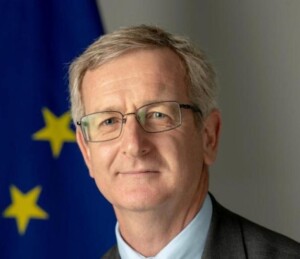Appointing of civilian governors, MPs remain obstacles for Sudan’s peace
There has not been any breakthrough yet regarding the appointment of civilian state governors and the formation of a new Legislative Council in the ongoing Sudanese peace negotiations in Juba, capital of South Sudan.
 Mohamed El Taayshi, member of Sudan’s Sovereign Council in Juba (Sovereign Council's Facebook page)
Mohamed El Taayshi, member of Sudan’s Sovereign Council in Juba (Sovereign Council's Facebook page)
There has not been any breakthrough yet regarding the appointment of civilian state governors and the formation of a new Legislative Council in the ongoing Sudanese peace negotiations in Juba, capital of South Sudan.
In a press statement on Friday, South Sudanese mediator Tut Galuak explained that the mediation team briefed the diplomatic missions in Juba about the current peace talks.
“We have highlighted that the current peace negotiations are in its final stage. The peace agreement will include practical measures as well as mechanisms for its implementation,” he said.
Mohamed El Taayshi, Member of Sudan’s Sovereign Council and Spokesperson for the government delegation explained that a joint committee of members of the government and the Sudan Revolutionary Front (SRF) has been formed to discuss the issues of civilian state governors and the Legislative Council within a specific period of time. The committee however could not reach a decision about these issues within the deadline.
The SRF rebel alliance sticks to the clause in the Juba Declaration of Principles it signed with Khartoum last September that stipulates the appointment of civilian state governors after the conclusion of a comprehensive peace agreement.
“The SRF maintains its position concerning the appointment of civilian governors and we respect that,” El Taayshi reported. He pointed out that the Sudanese government is only trying to fill the current, pressing administrative gap in the 18 Sudanese states by appointing civilian governors.
“The government is not talking about appointing governors permanently, rather it is about assigning civilian state governors temporally until a final peace agreement is reached,” El Taayshi said.
“The argument of the government is that the appointment of civilian state governors does not affect or conflict with the peace negotiations process. It rather serves the stability of the transitional period; this does not impose a new political reality,” he added. “Currently there is nothing more important than finalising a comprehensive peace agreement.”
The Sovereign Council member furthermore pointed to inaccurate quotes of him in the media. According to some media outlets, El Taayshi reported earlier that the appointment of governors is more important than the ongoing peace process and that the current peace negotiations with the SRFfailed.
“I have never stated or released any information like this,” he stated. “Peace is an imperative issue, and the negotiating parties have successfully concluded roughly 80 per cent of the negotiations.”
Radio Dabanga’s editorial independence means that we can continue to provide factual updates about political developments to Sudanese and international actors, educate people about how to avoid outbreaks of infectious diseases, and provide a window to the world for those in all corners of Sudan. Support Radio Dabanga for as little as €2.50, the equivalent of a cup of coffee.










 and then
and then